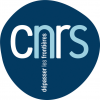RAMONS
Through both a theoretical framework, drawn on epistemological and sociological foundations, and a methodological framework, based on participatory and iterative action-oriented research, the RAMONS project aims to explore two main questions. The first relates to the implementation of interdisciplinary practices between climate scientists from varied disciplinary horizons. The second addresses the integration of the scientific, social and political spheres.
The hypothesis is that the challenges of interdisciplinary collaboration and communication, and the interfacing of science, society and policy, are the two faces of the same coin. Indeed, the barriers and facilitators of these scientific practices may be analysed and explored through the key concept of reflexivity, which has a potential contribution to the understanding of these dynamics. To analyse these scientific practices, and propose tools to guarantee their strength and stability, the RAMONS project will engage into participatory action research activities with the scientists of the laboratories belonging to the GIS Climate-Environment-Society. These will establish an arena for reflexivity, to make explicit the barriers and influences the climate sciences are facing, and to reflect on the communication options between scientific disciplines, and at the interface with society and policy.
Context
The motivation for the RAMONS project stems from the realisation of the importance of the interface between science and society for tackling the climate change problem. Since climate change is now a scientifically established fact, it is time to implement efficient social and political initiatives. Collective communication between the sociopolitical and scientific spheres seems to be the key. For this purpose, the RAMONS project focuses part of its research activities on promoting interdisciplinary dynamics between climate sciences and implementing collaborative initiatives to improve and reconsider the interface between science and society.
Objectives
Le RAMONS project aims to study the work methods used by researchers involved in interdisciplinary research on climate change impact, and to propose, test and analyse alternative practices to improve these methods. The lessons drawn from these studies should eventually serve to enhance the scientific potential of interdisciplinary research on climate change by providing these researchers with tools to increase their synergies and narrow the gap between their knowledge-producing activities and societal expectations.
Methodology
The underlying hypothesis is that research activities transgressing the borders between different disciplines and between science, society and public policy (e.g. interdisciplinary research on climate change impact) need to be promoted and improved through an iterative approach involving the following:
• analysis of current practices;
• proposal of alternative practices to researchers;
• testing and documentation of alternative practices;
• analysis of different iterations of the participative improvement process.
The project will therefore be conducted in several steps, according to the following chronology:
1) Exploratory step: ULICES interdisciplinary workshop
The ULICES workshop will gather a group of junior and senior researchers and other professionals engaged in climate-environment-societal research (technicians, logisticians, database managers) within a reduced space and for a relatively long period (3 weeks). This interdisciplinary microcosm will allow RAMONS project team members to explore the concepts and practices associated with the project in two manners:
• via individual discussions with group members to identify the challenges involved;
• by testing different options for communication within the group and for distribution of oceanographic campaign results to the outside world.
2) Analysis of current practices regarding knowledge mobilisation and interdisciplinary structuring, and interfacing between science and society
In this step, current practices will be examined with a view to establishing a baseline according to which project activities can be subsequently evaluated.
3) First iteration of the participative improvement process
In this step, the doctoral researcher will:
• analyse the results of the first two steps and present them to the scientific communities concerned,
• collect their reactions,
• consult Paris-based climate-environment-societal research specialists to identify preferential approaches,
• implement a suitable improvement initiative, and analyse its effects.
4) Second iteration of the participative improvement process
In this step, the doctoral researcher will:
• analyse the results of the first iteration, present them to the scientific communities concerned, and draw relevant lessons,
• initiate (and analyse) a second iteration.
Results will be summarised in a report proposing a roadmap to consolidate the dynamics created within the consortium.
9th ULICES interdisciplinary workshop, Marion Dufresne, organised within the framework of the RETRO oceanographic campaign (MD167), with the support of IPEV and PRES UniverSUD PARIS.
| Coordination | Jean-Paul VANDERLINDEN Professeur UVSQ au C3ED jean-paul.vanderlinden @ c3ed.uvsq.fr |







